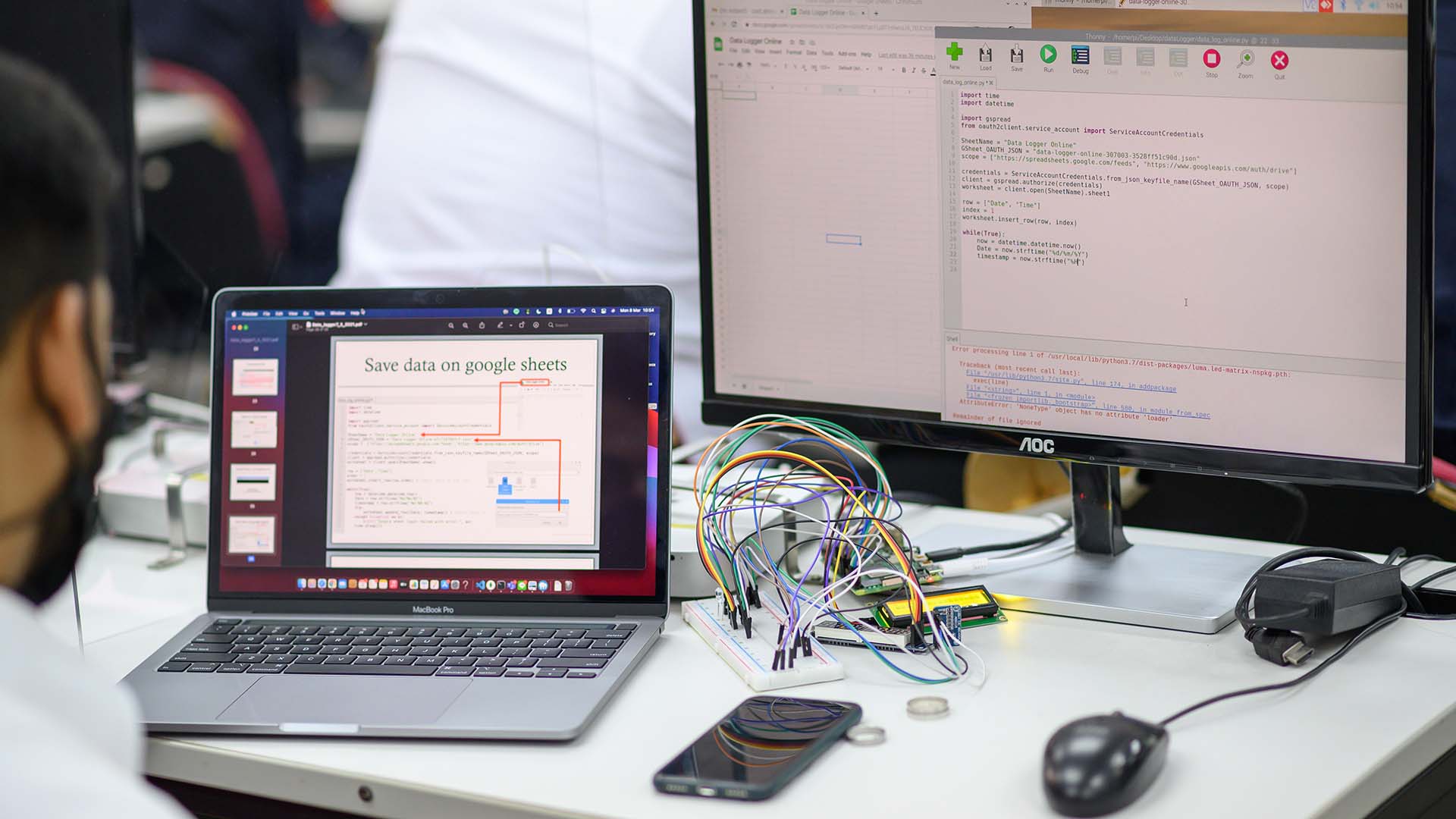Science Division
- Program Overview
- Major in Applied Mathematics
- Major in Biological Sciences
- Major in Chemistry
- Major in Computer Engineering
- Major in Computer Science
- Major in Creative Technology
- Major in Food Science and Technology
- Major in Physics
- Pathways Programs
- Internships
- Faculty Members
- Facilities and Equipment
- Alumni & Student Achievements
2+2 Dual-Degree
MUIC-Flinders University Dual Degree Program
Science Office
- Room 1603, 6th floor, building 1
- Phone: +66 (0) 2700 5000 Ext.3516,3517
- Fax: +66 (0) 2 441 9745
- Mon – Fri 8:00 am – 5:00 pm
- panisara.aka@mahidol.edu, abhisit.suw@mahidol.edu
AT MUIC
(International Programs)
Apply for Admission

Contact Admissions Office
icdad@mahidol.ac.th
Major in Computer Engineering
August 25, 2021 2024-04-19 7:05Major in Computer Engineering
Major in Computer Engineering
Computer Engineering is defined as the discipline that embodies the science and technology of design, construction, implementation and maintenance of software and hardware components of modern computing systems and computer controlled equipment. Computer engineering has traditionally been viewed as a combination of both computer science and electrical engineering. It has evolved over the past three decades as a separate, although intimately related, discipline. Computer engineering is solidly grounded in the theories and principles of computing, mathematics, science and engineering; it applies these theories and principles to solve technical problems through the design of computing hardware, software, networks and processes.
Technological advances and innovation continue to drive computer engineering. There is now a convergence of several established technologies (such as television, computer and networking technologies) resulting in widespread and ready access to information on an enormous scale. This has created many opportunities and challenges for computer engineers. This convergence of technologies and their associated innovations lie at the heart of economic development and the future of many organizations. The situation bodes well for a successful career in computer engineering.
Program in Computer Engineering (International Program)
For Students ID 63XXXXX
Onwards
For Student ID
61XXXXX-62XXXXX
Career Opportunities
- Increasingly, computer engineers are involved in the design of computer-based systems to address highly specialized and specific application needs. Computer engineers work in most industries, including the computer, aerospace, telecommunications, power production, manufacturing, defense and electronics industries. They design high-tech devices ranging from tiny microelectronic integrated-circuit chips to powerful systems that utilize those chips and efficient telecommunication systems that interconnect those systems. A wide array of complex technological systems, such as power generation and distribution systems and modern processing and manufacturing plants, rely on computer systems developed and designed by computer engineers.




